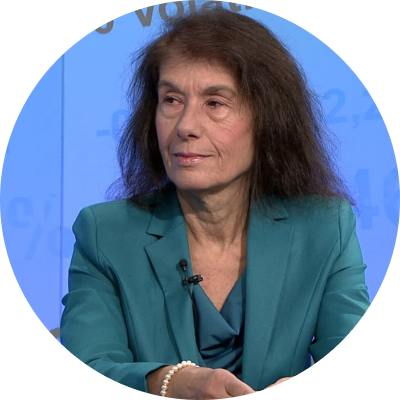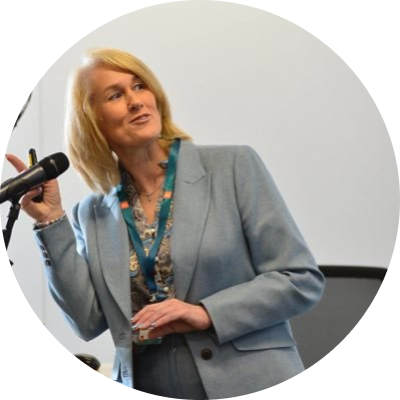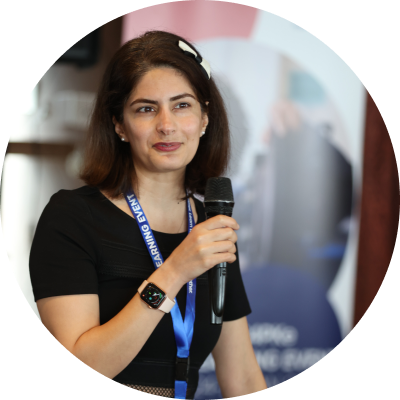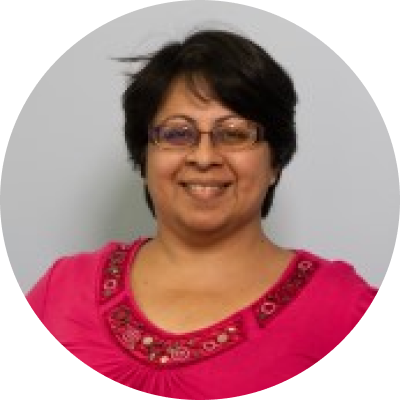SPEAKERS

Vincenzo Maltese
Head of Dissemination and Evaluation of Research Outputs Division Head of Digital services for research office,University Of Trento.

Tor Fridell
Tor Fridell, M. Sc. in Computer Science and Engineering. Currently Head of Student Information System at Linkoping University and coordinator for international affairs for the national Swedish Ladok Consortium. Previous jobs include Operations manager for the Ladok Consortium, IS manager for Linkoping Institute of Technology, and programmer. Tor has been employed by the university since 1996. Tor has long been involved in international cooperation regarding exchange of student data and is also active in standards work and development of student information systems. Tor has been President of the European Campus Card Association and Chairman of the National Swedish Standards Committee SIS TK450, the national body for CEN TC 353, working with Learning Technologies. Tor has been involved in the EMREX project since the start and is also active in development of student information systems. Tor is currently Chair of the EMREX User Group Executive Committee

Dr. Nauman Ahmad
Dr. Nauman Ahmad is a faculty at Centre for Preparatory Studies, Sultan Qaboos University in the Sultanate of Oman. He has participated in different esteemed international conferences as a panellist and given keynote speeches. His doctorate in computer science and informatics was awarded to him by the University of Huddersfield in the UK. His favourite field of study is designing pedagogical frameworks to facilitate vice chancellors in making effective decisions using visual digital dashboards, containing disability-inclusive education.
He has also designed the framework for learner-centered, self-paced active learning strategies for learners, to improve and achieve the intended learning outcomes. His field of expertise also includes micro learning. He is a certified trainer (Train the Trainer); and has multiple other certifications. Dr. Nauman was awarded as a “distinguished teacher” and “distinguished researcher” by the Sultan Qaboos University.
He also won awards for outstanding papers at conferences around the world; and was also given the “Ambassador of Pakistan’s Certificate for Academic Excellence” by the Pakistani ambassador in Oman. Dr. Nauman is also a prominent researcher in the fields of e-learning, m-learning, and requirements engineering. Furthermore, he has published papers in significant peer-reviewed journals and presented the research findings at prestigious international conferences. Additionally, he serves as an associate editor, reviewer, board member, and advisor to numerous journals and conference boards, providing editorial and review-based services to local and international communities.

Ana I. Proykova
Prof. Dr. Ana I. Proykova, Doctor Habil, a Full Professor for Atomic and Molecular Physics at the University of Sofia is the Head of the High Performance Computing Laboratory at the Sofia Tech Park and the Science Director of the newly established Centre of Excellence "Universities for ScieNce, Informatics and Technologies in the e-Society - UNITe" (2018-2023). She coordinates the project EuroCC2 NCC (1.01.2023-31.12.2025, funded by the Digital Europe Program) at the University of Sofia. She leads the project EUMaster4HPC (1.01.2022-31.12.2025) funded by the EuroHPC JU (Horizon 2020).
In her professional career she worked at universities around the world, including Belgium, Germany, Israel, Italy, the USA, Japan, Singapore, Taiwan. She has over 40 years of experience in the field of computational physics with achievements in phase transitions of low-dimensional systems, simulation techniques and data analysis using HPC technologies.
She coordinated the EuroCC NCC (1.09.2020-31.12.2022, Horizon 2020) at the University of Sofia, the Work Package on Modeling and Simulation of the CoNanomet FP7 project; the WP Advancement in research e-infrastructure in the GATE H2020 project on Big Data for Smart Society (Twinning Phase 1). She leaded the projects "Parallel computations of processes in complex systems" (2018-2019), Task-based Parallel Applications in Containers Platforms (2019-2020).
She was a member of four European advisory groups (AG) for Horizon2020 Work Program 2014-2015, namely on the Future and Emerging Technologies, on Science With and For Society, on Gender, on International Cooperation. She is a member of the Scientific Committee on Health, Environmental and Emerging Risks (SCHEER - 2013-2026); the Sofia University representative in the EOSC- Association. Prof. Proykova is the Chair of the ESFRI Strategic Working Group on Data, Computing and Digital Research Infrastructures and Bulgarian delegate in the ESFRI Forum. Publications: the list is available at https://orcid.org/0000-0002-5808-1822.

Sarah Knight
Sarah Knight is head of learning and teaching transformation within the higher education and research directorate at Jisc and is taking forward the outcomes of Jisc’s learning and teaching reimagined initiative by supporting universities with their digital transformation of learning, teaching and assessment. Sarah established the Jisc student experience experts group, an active community which provides valuable consultation and dissemination opportunities for Jisc. Sarah continues to champion Jisc’s change agents’ network: to support staff-student partnership working on technology enhanced curriculum projects. During her time at Jisc, Sarah has led large transformation projects on curriculum design, digital capabilities and learners’ experiences of technology.

Dr. Jan Beseda
Dr. Jan Beseda leads as the Head of the National Centre for Distance Education within the Centre for Higher Education Studies. Additionally, he holds the role of Director at Czech Association of Professional Higher Education. Dr. Beseda's primary focus lies in leveraging ICT for educational enhancement, quality assurance (QA), and competency development. Notably, he spearheads the organization of DisCo, an esteemed international conference centered around utilizing ICT in education.
Dr. Beseda's contributions extend to the European Association of Institutions in Higher Education (EURASHE), where he has been actively engaged as a member of the Working Group on Learning Teaching and the Working Group on Microcredentials. Presently, he is an active participant in the EURASHE QA Community of Practice. Recognized for his outstanding contributions, Dr. Beseda received the prestigious EURASHE PHE Award for Digitalization for the project PROFFORMANCE.
His expertise and dedication have positioned him as a valuable contributor to numerous international projects, further solidifying his impact and influence within the realm of higher education.

Dr Fereshte Goshtasbpour
Dr Fereshte Goshtasbpour is a lecturer in Digital Education at the Institute of Educational Technology (IET), Open University UK. She has twelve years of experience in higher education as lecturer, researcher and online course designer particularly at scale and has worked with partners in the Middle East, Africa, UK, and Europe. She was the capacity development lead for the Skills for Prosperity Kenya project where she led the needs assessment and course design of a nation-wide capacity development programme for Kenya’s public, HE sector to strengthen their expertise in digital education. She has been the co-investigator on many internally and externally funded projects (totally £1.5 m).
She contributes to IET research and curriculum as the chair for a number of microcredential courses and modules, the co-lead of Computers and Learning Research Group (CALRG), the steering committee member for FutureLearn Academic Network (FLAN) and an associate Editor for the Journal of Interactive Media in Education (JIME). For complete publication list see https://oro.open.ac.uk/view/person/fg2592.html

Shanali Govender
Shanali is a senior lecturer within the Staff Development unit at CILT. Although Shanali’s teaching experience began in secondary education, a return to higher education to pursue her own studies prompted a shift to an interest in the higher education landscape. She has worked (in varying capacities) in three South African institutions of higher education, and has strong interests in the scholarship of learning and teaching.
Her particular brief in the staff development team is to support part-time and non-permanent teaching staff. She currently teaches on the Postgraduate diploma in educational technologies, co-convening the Online Learning Design module. She has designed several online staff development short courses, and teaches on Core Concepts in Learning and Teaching, and An online introduction to Assessment. While continuing to work in the field of staff development at UCT, she is working towards her PhD, exploring the experiences of non-permanent staff who teach in higher education.